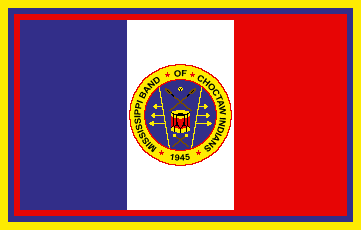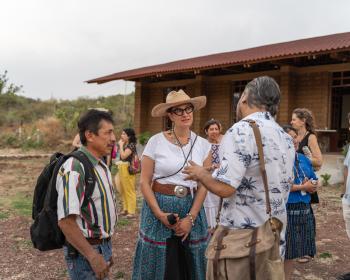
By Cass Madden
On June 15th, the Supreme Court of the United States agreed to hear the first Tribal jurisdiction case in 7 years. The Dollar General Corporation operates a store on land which belongs to the Mississippi Choctaw reservation; the Tribe issued a license to the store for use of the land. The manager of the store is accused of sexual assault of a minor working at the store through a youth training program. The parents of the minor brought charges against the corporation in Tribal court, suing Dollar General for $2.5 million in damages. Though the Tribal court ruled in favor of the minor and his family, the company refused to submit to the jurisdiction of the tribal court as a non-Indian entity. Previous cases have established that, generally, Tribal authorities do not have jurisdiction over non-tribal members, but two important exceptions were established in the 1981 case Montana v. United States: Tribal authorities have jurisdiction over non-tribal members who have entered into consensual relationships with Tribal members and have jurisdiction in regards to activities that threaten the political integrity, economic security, or health and well-being of the tribe. Dollar General appealed the case in the 5th Circuit Court of Appeals, which ruled that the consensual relationship exception exists in this case, because the minor and the manager had willingly and knowingly entered into a professional relationship and the Tribe has reasonable authority to prosecute the sexual assault of one of its members. Dollar General filed a petition with the Supreme Court, expressing that the tribal jurisdiction question had not been effectively resolved in the case. The case is up for argument in the current court term.
The Supreme Court summarizes the issue being discussed in the case as “[w]hether Indian tribal courts have jurisdiction to adjudicate civil tort claims against nonmembers, including as a means of regulating the conduct of nonmembers who enter into consensual relationships with a tribe or its members.”Aside from the obvious fact that the case impacts Tribes, the case is being anxiously watched by tribal authorities across the country because tribal interests have had such a poor record in recent court cases—since 2005, Tribal interests have won only 2 cases and lost 9. Indeed, there has been a concerted effort on the part of tribes to keep cases out of a supreme court obviously unsympathetic to Indian issues. In 2001, the Tribal Supreme Court Project was created in an attempt to ensure better representation and advocacy of indigenous issues in the US Supreme Court—the outcome of the current case may be an indicator of the progress of that work. The Mississippi Band of Choctaw Indians filed an opposition brief urging the Supreme Court not to hear the case, heavily citing both the decision in Montana v United States and the decisions of the lower courts in the intervening years to argue that this particular case does not constitute an exception to the rules for Tribal jurisdiction laid out in the 1981 case. The court ultimately accepted the petition of the Dollar General Corporation, but the Tribe introduces several key points about the limited jurisdiction of the Supreme Court in deciding Tribal issues (this bridges on legislation, which is the purview of congress) and the lack of abuses present in the tribal justice system which are sure to be key points in the arguments and deliberation of the case. The continued existence of tribes is dependent on tribal sovereignty and tribal jurisdiction, which previous court decisions have severely limited; if the court rules in favor of Dollar General, the already limited reach of Tribal jurisdiction will be further reduced.



